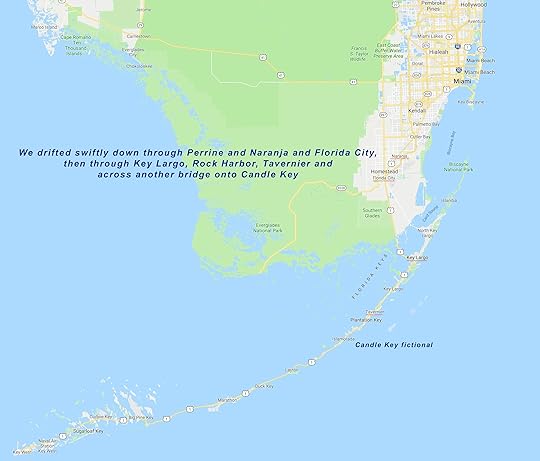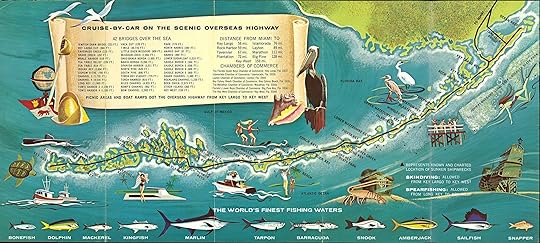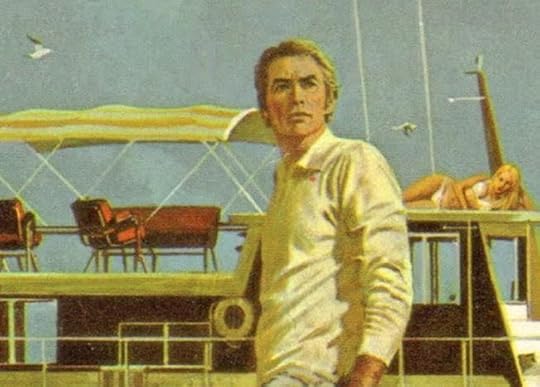What do you think?
Rate this book


310 pages, Paperback
First published January 1, 1964
“This is a complex culture, dear. The more intricate our society gets, the more semi-legal ways to steal.”
I am wary of the whole dreary deadening structured mess we have built into such a glittering top-heavy structure that there is nothing left to see but the glitter, and the brute routines of maintaining it.
These are the playmate years, and they are demonstrably fraudulent. The scene is reputed to be acrawl with adorably amoral bunnies to whom sex is a pleasant social favor. The new culture. And they are indeed present and available, in exhausting quantity, but there is a curious tastelessness about them. A woman who does not guard and treasure herself cannot be of very much value to anyone else. They become a pretty little convenience, like a guest towel. And the cute little things they say, and their dainty little squeals of pleasure and release are as contrived as the embroidered initials on the guest towels. Only a woman of pride, complexity and emotional tension is genuinely worth the act of love…
“Trav, you be careful getting near him. He’s mean as anything you like to find in a swamp.”

"What do you mean, he doesn't exist! What are you saying, Cathy…that he's just some character in a book?"


"Half is a lot better than nothing at all."The pattern for the series is set in The Deep Blue Good-by when a woman by the name of Cathy Kerr asks Trav for help recovering a dubiously-earned fortune that her dead father left hidden. Trav takes the case, and it leads to a smarmy but persuasive lowlife named Junior Allen. And in his effort to learn more about Allen, Trav meets Allen's latest victim, Lois Atkinson. Allen had wormed his way into controlling Lois’ life and money, and she was reduced to a nearly catatonic state by the time Trav came along. In addition to being a brute and a treasure-hunting rival for Trav, Lois reveals that Allen is also a serial rapist. Trav proceeds with his plan to recover Cathy’s fortune and ensure that Junior Allen meets justice.
"The scene is reputed to be acrawl with adorably amoral bunnies to whom sex is a pleasant social favor. The new culture. And they are indeed present and available, in exhaustive quantity, but there is a curious tastelessness about them. A woman who does not guard and treasure herself cannot be of much value to anyone else. They become a pretty little convenience, like a guest towel.”Trav is a man who refuses to change much of anything. He thoughtfully but forcefully maintains his independent life, a life of action that makes for brisk reading and also begins to weigh on Trav, I am told, by the end of the series.












...plastic credit cards, payroll deductions, insurance programs, retirement benefits, savings accounts, Green Stamps, time clocks, newspapers, mortgages, sermons, miracle fabrics, deodorants, check lists, time payments, political parties, lending libraries, television, actresses, junior chambers of commerce, pageants, progress, and manifest destiny. (p. 14)
...with a thumb in the Yellow Pages, I began checking the marinas. All this great ever-increasing flood of bronze, brass, chrome, Fiberglas, Lapstreak, teak, auto pilots, burgees, Power Squadron hats, nylon line, all this chugging winking blundering glitter of props, bilge pumps and aelf-importance needs dockside space. (p. 137)
...is on a short rein. Or reign. ...Maybe he was clever, but certainly not controlled. ...He was a swaggering sailor with money in his pockets, and if he kept on being careless, neither he nor the money could last very long. Viewed in that light, his luck was impressive. (p. 144)
The smile did not change and the eyes became slightly absent. She made some small talk and then swayed down the aisle, smiling, offering official services. Most of them find husbands, and some of them are burst or burned in lonely fields, and some of them become compulsively, forlornly promiscuous, sky sailors between the men in every port, victims of rapid transit, each flight merely a long arc from bed to bed. (p. 97)
She gave me a strange and troubled look. "I don't know as it was love. I didn't want him to have me like that, right there at the home place with my mother still alive then, and Davie there, and Christine and her two. It was shameful, but I couldn't seem to help myself. The first time or so, he forced me. He would be tender and loving, but afterward. Saying he was sorry. But he was at me like some kind of animal, and he was too rough and too often. He said it had always been like that with him, like he couldn't help himself. And after a while he changed me, so that it didn't seem too rough any more, and I didn't care how many times he came at me or when. It was all turned into a dream...and I went around feeling all soft and dreamy and stupid, and not caring a damn about what anybody thought, only caring that he wanted me and I wanted him. He's a powerful man, and all the time we were together he never did slack off...." (pp. 35-36)
Returning to Candle Key to rape and corrupt the lonely woman who found him distasteful had been foolish. (p. 144)
A lady is a very special happening, so scented and delicate and breathless and totally immaculate. ...She wore a filmy something that tied at the throat and parted readily.... ...Her caresses were quick and light and her body turned and glowed and glided and changed in her luxurious presentation of self, her mouth saying darling and her hair sweet in darkness, a creature in endless movement, using all of herself the way a friendly cat will.... (pp. 128-129)
True, it was a splendid specimen, good bones, a true heart, and a marvelous pelt. It could cook and adore and it had a talent for making love. Sew it into burlap and roll it in the mud and it would still be, unmistakably, a lady. (p. 132)
These are the playmate years, and they are demonstrably fraudulent. The scene is reputed to be acrawl with adorably amoral bunnies to whom sex is a pleasant social favor. The new culture. And they are indeed present and available, in exhausting quantity, but there is a curious tastelessness about them. A woman who does not guard and treasure herself cannot be of very much value to anyone else. They become a pretty little convenience, like a guest towel.... Only a woman of pride, complexity, and emotional tension is genuinely worth the act of love," (p. 20)

"Where you kidding me that time we talked... about what you do for a living?"
"What did I say?"
"It sounded sort of strange, but I guess I believed you. You said if X has something valuable and Y comes along and takes it away form him, and there is absolutely no way in the world X can ever get it back, then you come along and make a deal with X to get it back, and keep half. Then you just... live on that until it starts to run out. Is that the way it is, really?"